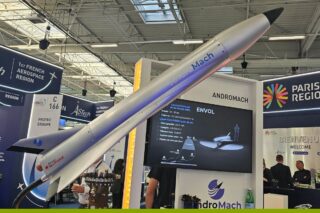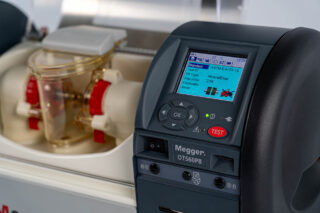According to the State of Smart Manufacturing Report released by automation leader Rockwell Automation, generative AI is seen as a top tech investment for manufacturers. 94% of them also expect to maintain or increase their workforce.
Rockwell Automation, in collaboration Sapio Research surveyed more than 1,500 manufacturers across 17 of the leading manufacturing countries.
The survey was pulled from a range of industries including Consumer Packaged Goods, Food & Beverage, Automotive, Semiconductor, Energy and Life Sciences. The company sizes range from revenues spanning $100 million to over $30 billion.
According to Andrew Stump, Director of Business Development for Strategic Initiatives, Rockwell Automation,
“Globally, the vast majority of manufacturers are on some kind of digital transformation journey, with 95% either using or evaluating smart manufacturing technology. This is a dramatic increase from 84% last year. Our research shows manufacturers are highly focused on the future of industrial operations.”


Here are the key findings of the report :
Artificial Intelligence
According to the report, manufacturers worldwide consider artificial intelligence as the top technology that will significantly impact business outcomes. 83% of manufacturers anticipate incorporating generative AI into their operations by 2024.
Workforce
According to the survey, 94% of manufacturers expect to maintain or expand their workforce. This decision stems from the adoption of smart manufacturing practices, which emphasize the importance of human capital alongside automation. Instead of solely relying on machines, manufacturers recognize the value of skilled workers in driving efficiency and innovation within their operations.
However, manufacturers are facing challenges. First, there is a skill shortage. Also, navigating organizational transitions driven by technological advancements remains a critical concern for manufacturers.
According to Allison Kuhn, principal analyst at LNS Research,
“The workforce of 2019 is not coming back. Developing a sustainable workforce strategy is critical to successfully navigate daunting manufacturing challenges. Leaders are winning the war for talent by embracing this new reality and with a laser focus on three imperatives: 1) Total Employee Experience, 2) Servant Leadership, and 3) Connected Frontline Workforce (CFW) Applications.”
Quality
With the integration of advanced technologies, manufacturers aim to enhance the quality standards of their products and processes, thereby boosting customer satisfaction and market competitiveness.
Besides, quality control emerges as the top AI/Machine Learning use case for 2024 among manufacturers. Leveraging artificial intelligence and machine learning algorithms, manufacturers seek to streamline quality control processes, detect defects or deviations in real time, and proactively address issues before they escalate.
Using AI technologies to enhance product inspection and thereby improve their quality is advocated by experts in the aerospace industry, particularly following the quality control failures observed in numerous aircraft models manufactured by Boeing.
Cybersecurity
Cybersecurity has taken a prominent position as one of the top five external risks confronting manufacturers. This marks the first time cybersecurity has claimed such prominence in their risk landscape, securing the third overall position in their risk assessment. As manufacturers navigate an increasingly digitized landscape, safeguarding their systems and data from cyber threats has become a critical priority to ensure operational resilience and protect sensitive information from malicious actors.
Another study released last week “The State of OT Security: A Comprehensive Guide to Trends, Risks, and Cyber Resilience,” revealed that one in four industrial enterprises reported having to temporarily halt operations due to a cyberattack.
Sustainability
Sustainability and Environmental, Social, and Governance (ESG) considerations have also become important for manufacturers. Energy management is particularly emerging as a focal point within their sustainability initiatives.
The full report can be found here.










